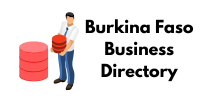In today’s fast-paced business world. the ability to consistently generate high-quality leads is paramount to sustained growth. However. the traditional lead generation process can be time-consuming. resource-intensive. and prone to human error. This is where automation steps in. offering a powerful solution to streamline operations. improve efficiency. and ultimately. drive more qualified prospects into your sales pipeline. But what exactly within this crucial process can. and should. be automated? Let’s dive into the key areas where embracing automation can transform your lead generation efforts.
Nurturing and Qualifying: The Power of Automated Engagement
One of the most impactful areas for automation in lead generation lies in nurturing and qualifying your prospects. Think about the repetitive tasks involved: sending welcome emails. following up on website inquiries. and providing valuable content based on a lead’s expressed interests. Marketing automation platforms can handle these tasks flawlessly. You can set up automated email sequences triggered by specific actions. such as downloading an ebook or visiting a particular product page. These sequences can deliver personalized content. guide leads further down the sales funnel. and even score them based on their engagement levels. This frees up your sales team to focus on engaging with genuinely interested and sales-ready leads. rather than spending hours on initial outreach and follow-up.
Data Enrichment and Segmentation: Building a Smarter Prospect Database
Accurate and comprehensive data is the bedrock of effective lead generation. Manually research and inputting prospect information is a tedious and often incomplete process. Fortunately. automation can significantly alleviate this burden. Tools exist that can automatically enrich your lead data by pulling information from publicly available sources like LinkedIn. company websites. and other business shop databases. This enrichment process can provide valuable insights into your leads’ demographics. job titles. company size. and more. Furthermore. automation allows for sophisticated lead segmentation based on this enriched data. You can automatically group leads into specific segments based on industry. geography. or behavior. enabling you to tailor your marketing messages and sales outreach for maximum impact.
Social Media and Content Distribution: Amplifying Your Reach with Precision
Your online presence is a vital component of lead generation. and automation can help you maximize its impact. Social media management tools can automate the scheduling and publishing of your content across various platforms. ensuring a consistent and timely presence. Beyond simple scheduling. you can also automate the monitoring of relevant keywords and hashtags. allowing you to identify and phone editing tips for stunning social media posts engage with potential leads who are discussing topics related to your business. Furthermore. automation can be used to distribute your content effectively. For instance. automated workflows can push new blog posts or whitepapers to relevant social media channels or email lists. ensuring your expertise reaches the right audience without manual intervention.
Streamlining the Handoff: Ensuring a Seamless Transition to Sales
The transition of a qualified lead from marketing to sales is a critical juncture that can often be a bottleneck. Automation can create a seamless and efficient mobile number list handoff process. ensuring that no valuable prospect falls through the cracks. When a lead reaches a pre-defined qualification threshold. an automated system can instantly notify the appropriate sales representative. providing them with a complete overview of the lead’s engagement history and relevant data. This immediate and informed handover allows sales teams to engage with prospects at the peak of their interest. significantly increasing the chances of conversion. By automating these key aspects of your lead generation process. you empower your team. optimize resources. and ultimately. drive more meaningful business outcomes.

